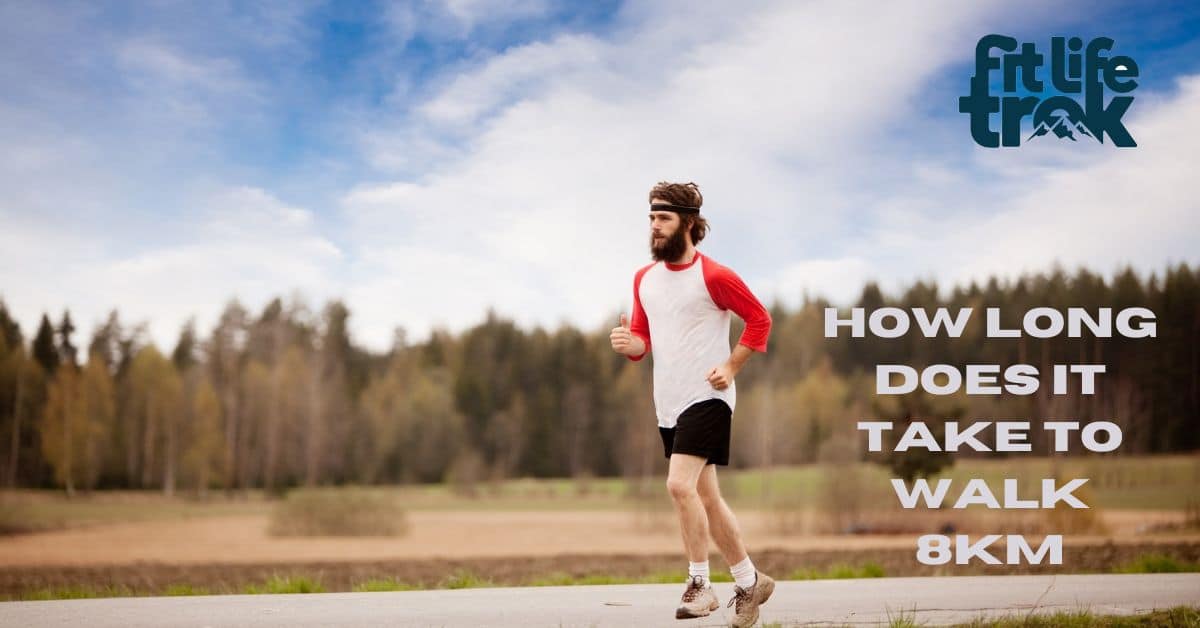Walking is one of the simplest yet most effective forms of exercise available to us. It’s a low-impact activity that nearly everyone can do, offering numerous health benefits while requiring no special equipment or training.
Walking 8 kilometers is a popular fitness goal for many. The time it takes to cover this distance varies based on several factors.Imagine strolling through a picturesque park, feeling the breeze on your face. You’re not just taking a walk; you’re embarking on an 8km journey.
This guide will break down everything you need to know about walking 8km. We’ll look at factors affecting your walking time and speed. Plus, we’ll share tips to make your 8km walk more enjoyable and effective. Ready to step into the world of 8km walks?
How long does it take to walk 8km?
On average, it takes about 90 to 120 minutes to walk 8 kilometers. But hey, don’t sweat it if you’re slower or faster! Your walking time depends on a bunch of factors. Some folks might zip through it in an hour, while others might take a leisurely two-hour stroll.
Your walking speed plays a huge role here. A brisk walker might cover 8km in about 80 minutes, while someone taking it easy might need closer to two hours. Remember, it’s not a race – the key is to find a pace that feels good for you.
Think of it like this: 8km is roughly the distance from Central Park to Times Square and back in New York City. Or, for our West Coast friends, it’s about the length of the famous Venice Beach Boardwalk in Los Angeles. Imagining these real-world distances can help you visualize your walking journey.
Read More About: How Long Does It Take To Walk 5 km? Tips To Improve Your 5k Time
Factors Affecting Walking Time
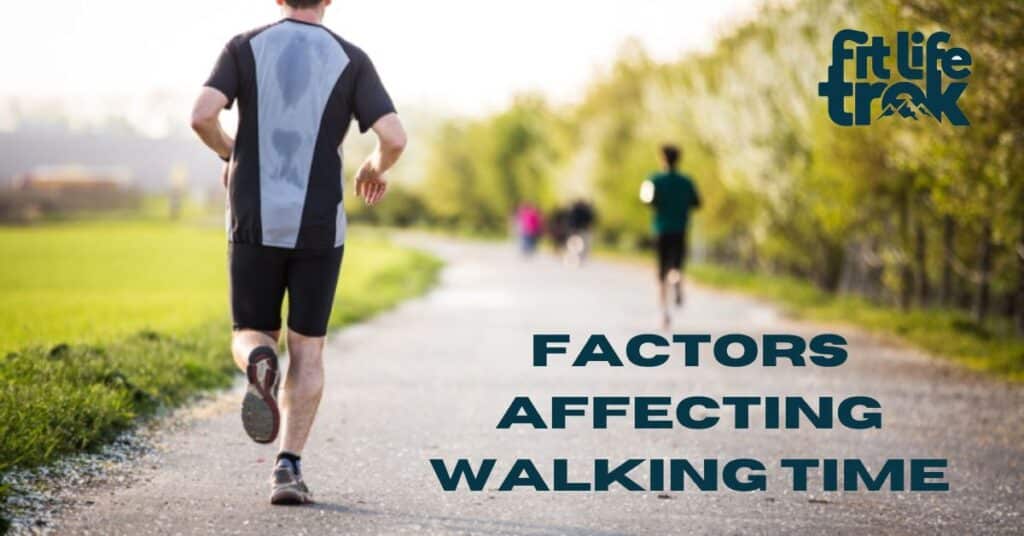
Age
As we get older, our walking speed tends to slow down a bit. It’s totally normal. A 20-year-old might breeze through 8km faster than someone in their 60s. But don’t let that stop you – walking is great for folks of all ages!
Young adults often walk at about 5-6 km/h, while seniors might cruise at 3-4 km/h. The important thing is to keep moving, no matter your age. Regular walking can help keep you spry and healthy as you grow older.
Consider this: a study in the Journal of Applied Physiology found that older adults who walked regularly had walking speeds comparable to those decades younger. So lace up those shoes – it’s never too late to pick up the pace!
Gender
Generally, men tend to walk a smidge faster than women. This is mostly due to differences in average height and muscle mass. But remember, these are just averages – plenty of women outpace men!
The key is to focus on your own progress, not comparing yourself to others. Whether you’re a guy or gal, the benefits of walking are the same. So lace up those shoes and hit the pavement!
Interestingly, when it comes to ultra-long distance walking, the gender gap often disappears. In events like 24-hour walks, women frequently match or outperform men. It’s all about finding your own rhythm and pushing your personal limits.
Height
Taller folks often have a slight advantage when it comes to walking speed. Why? It’s all about stride length. Longer legs usually mean longer steps, which can translate to covering ground more quickly.
But don’t worry if you’re not tall – good walking technique can make a big difference. Focus on taking smooth, comfortable strides rather than trying to stretch your steps unnaturally.
Here’s a fun fact: the world’s fastest walker, Tom Bosworth, is only 5’8″ (173 cm) tall. He holds the one-mile walk world record at 5:31.08. It just goes to show that technique and training can trump natural advantages!
Fitness Level
Your overall fitness plays a huge role in how quickly you can walk 8km. Someone who exercises regularly will likely find it easier to maintain a faster pace compared to someone who’s just starting out.
Walking itself is a great way to boost your fitness! Start where you are, and you’ll likely find yourself getting faster and feeling stronger over time. Consistency is key – regular walks will improve your endurance and speed.
A study in the British Journal of Sports Medicine found that people who took up a regular walking program saw their walking speed increase by about 4% after just a few weeks. So stick with it – you’ll be surprised at how quickly you improve!
Walking Pace
Your walking pace is a major factor in determining how long it takes to cover 8km. Here’s a quick breakdown:
- Leisurely pace (3-4 km/h): 120-160 minutes
- Moderate pace (4-5 km/h): 96-120 minutes
- Brisk pace (5-6 km/h): 80-96 minutes
- Power walking (6-7 km/h): 68-80 minutes
Remember, the best pace is one you can maintain comfortably throughout your walk. It’s okay to start slow and gradually pick up speed as you get fitter.
Try this: on your next walk, time yourself for a kilometer. This will give you a good idea of your current pace and help you set realistic goals for improvement.
Terrains
The ground you’re walking on can seriously impact your speed. A flat, paved path will be much easier to navigate than a hilly trail or sandy beach. Uphill sections will slow you down, while downhill parts might speed you up a bit.
Urban walks might involve stopping at crosswalks, while nature trails could have obstacles to navigate. Consider the terrain when planning your walk and adjusting your time expectations.
Did you know that walking on sand can burn up to 1.6 times more calories than walking on a firm surface? So if you’re lucky enough to live near a beach, take advantage of it – just be prepared for a more challenging workout!
Weather conditions
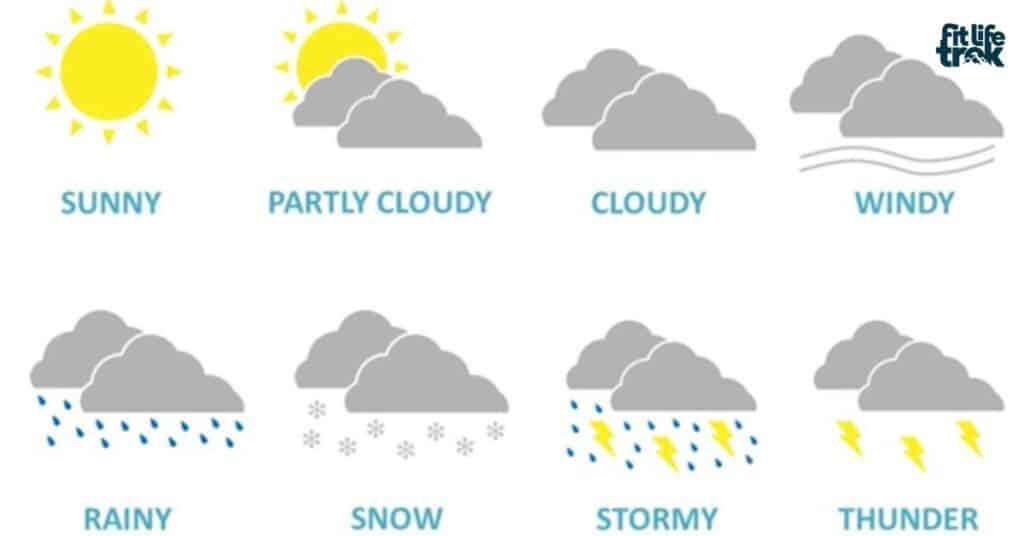
Mother Nature can be a big factor in your walking time. A beautiful, mild day might help you breeze through your 8km. But strong winds, rain, or extreme temperatures can slow you down.
Hot weather might require you to take it slower and stay hydrated. Cold weather could mean bundling up, which might restrict movement a bit. Always prioritize safety and comfort over speed when the weather’s challenging.
Here’s a pro tip: in hot weather, try to walk during the cooler parts of the day – early morning or evening. In cold weather, remember that your body will warm up as you walk, so dress in layers you can easily remove.
Learn More About: How Long Does it Take to Walk 4 Miles? The Perfect Distance for Beginners
Stride Length
Your stride length – the distance between your steps – plays a big role in your walking speed. A longer stride often means covering more ground with each step. But be careful not to overstretch – your stride should feel natural and comfortable.
To measure your stride, walk normally for about 20 steps. Measure the distance, then divide by 20. This gives you your average stride length. Knowing this can help you estimate how many steps you’ll take in 8km.
Interestingly, research shows that your natural stride length is usually the most efficient for you. Trying to artificially lengthen your stride can actually slow you down and use more energy. So walk naturally – your body knows best!
Steps in an 8km walk
Curious about how many steps you’ll take during your 8km journey? On average, it’s about 10,000 to 11,000 steps. But remember, this can vary based on your stride length.
Here’s a handy table to give you an idea:
| Stride Length | Approximate Steps in 8km |
| 60 cm | 13,333 steps |
| 70 cm | 11,429 steps |
| 80 cm | 10,000 steps |
| 90 cm | 8,889 steps |
Using a pedometer or fitness tracker can help you keep count. It’s a fun way to see your progress and stay motivated!
Did you know that many health organizations recommend 10,000 steps a day for good health? An 8km walk gets you most of the way there in one go. It’s a great way to boost your daily step count!
Calories burned walking 8km in 90 minutes
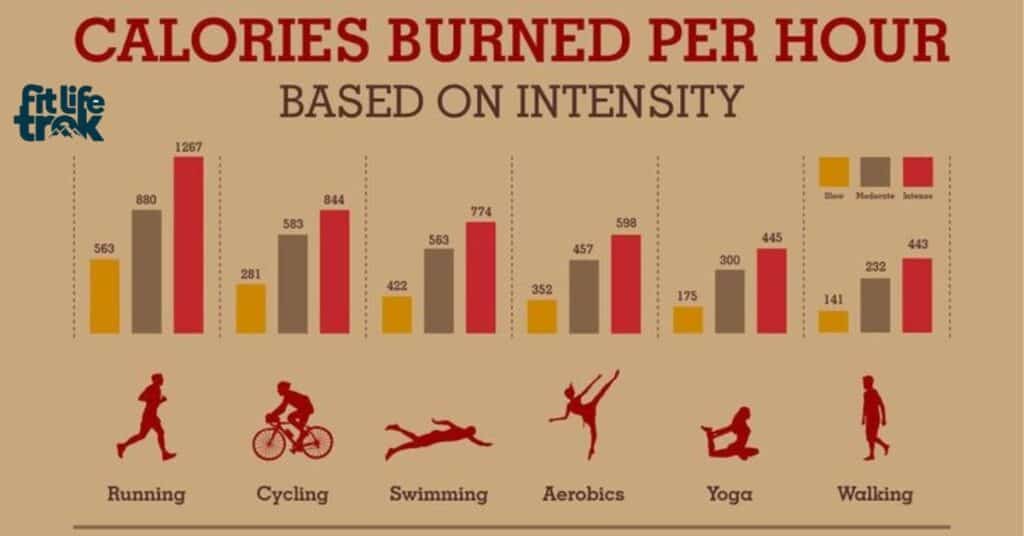
Walking 8km is a great way to burn some calories! In about 90 minutes, you could torch anywhere from 300 to 600 calories, depending on factors like your weight, walking speed, and the terrain.
A 150-pound person walking at a moderate pace (about 5 km/h) might burn around 400 calories in 90 minutes. Remember, the faster you walk, the more calories you’ll burn. But don’t push yourself too hard – consistency is more important than intensity when it comes to long-term health benefits.
Here’s something cool: walking uphill can increase your calorie burn by up to 60%! So if you have some hills in your neighborhood, don’t avoid them – embrace the challenge and reap the rewards.
Read More About: Anytime fitness student discount – All you need to know about
Is walking 8km a day too much?
For most healthy adults, walking 8km a day is a great goal! It’s enough to provide significant health benefits without being too overwhelming. However, if you’re new to exercise or have any health concerns, it’s always best to check with your doctor first.
If 8km seems daunting at first, don’t worry! Start with shorter distances and gradually work your way up. Your body will adapt over time, and before you know it, 8km will feel like a breeze. The key is to listen to your body and progress at a pace that feels right for you.
Consider this: if you walk 8km every day for a year, you’ll have covered about 2,920 km – that’s like walking from New York City to Los Angeles! It’s an amazing achievement that can have profound effects on your health and wellbeing.
What are the benefits of walking 8km?
Walking 8km regularly can do wonders for your health! Here are some of the awesome benefits you can expect:
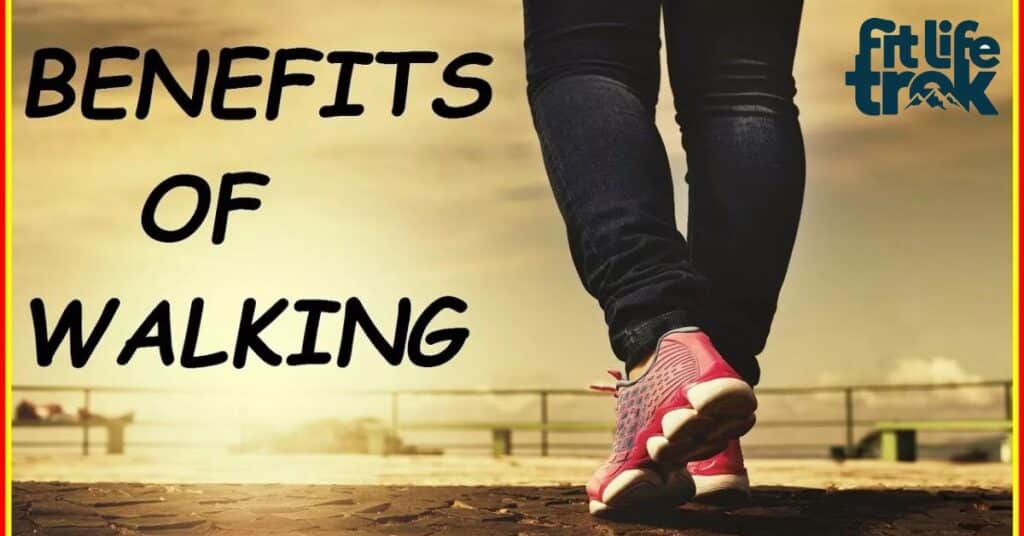
Cardiovascular Disease Prevention
Regular walking can help keep your heart happy and healthy. It strengthens your heart, improves circulation, and can help lower blood pressure. An 8km walk is a great way to get your recommended daily dose of cardio!
A study in the New England Journal of Medicine found that people who walked regularly had a 30% lower risk of cardiovascular events compared to those who didn’t walk. That’s a pretty good reason to lace up those shoes!
Focus
Walking isn’t just good for your body – it’s great for your mind too! Many people find that a long walk helps clear their head and improves concentration. It’s like a reset button for your brain!
Research from Stanford University found that walking increased creative output by an average of 60%. So if you’re stuck on a problem, a walk might be just what you need to find a solution.
Improved blood flow
All that walking gets your blood pumping! Better circulation means your body can deliver oxygen and nutrients more efficiently to all your cells. This can help you feel more energized and can even speed up healing.
Improved blood flow also means better brain function. Studies have shown that regular walking can improve memory and cognitive function, especially in older adults. It’s like a fountain of youth for your brain!
Improved moods
Ever heard of a “runner’s high”? Walkers can get it too! Exercise releases endorphins, your body’s natural feel-good chemicals. An 8km walk can be a great mood booster and stress reliever.
A study in the journal Emotion found that even a 12-minute walk could significantly improve mood. Imagine what an 8km walk could do! It’s like a natural antidepressant with no side effects.
Improved Metabolism
Regular walking can help rev up your metabolism. This means your body gets better at burning calories, even when you’re not exercising. It’s like giving your internal engine a tune-up!
Here’s a cool fact: the metabolism-boosting effects of walking can last for hours after you’ve finished your walk. So even when you’re sitting on the couch later, your body is still reaping the benefits of your earlier activity.
Weight loss

Combining regular 8km walks with a healthy diet can be a great strategy for weight loss. It’s a low-impact way to burn calories and build lean muscle. Plus, it’s easier on your joints than running, making it a sustainable long-term exercise option.
Did you know that walking can also help reduce belly fat? A study in the Journal of Exercise Nutrition & Biochemistry found that walking led to a significant reduction in visceral fat, the dangerous fat that accumulates around your organs.
Tips for walk
Ready to hit the road? Here are some tips to make your 8km walks more enjoyable and effective:
- Invest in good shoes: Your feet will thank you! Look for shoes with good arch support and cushioning.
- Stay hydrated: Bring water, especially on longer walks or hot days. Aim to drink about 500ml of water for every hour of walking.
- Start slow: Warm up with a slower pace for the first few minutes. This helps prevent injury and makes the walk more enjoyable.
- Use good posture: Stand tall, engage your core, and swing your arms naturally. Good form makes your walk more efficient and comfortable.
- Mix it up: Try different routes to keep things interesting. Explore new neighborhoods or nature trails to keep your walks exciting.
- Bring a friend: Walking with a buddy can make the time fly by. Plus, it’s a great way to catch up and stay accountable.
- Track your progress: Use a fitness app or journal to see how you improve over time. Seeing your progress can be a great motivator!
- Listen to music or podcasts: A good playlist or interesting podcast can make your walk more enjoyable and help the time pass quickly.
- Walk during your lunch break: If you’re short on time, try incorporating your walk into your workday. It’s a great way to refresh your mind for the afternoon.
- Remember to stretch: A few minutes of stretching after your walk can help prevent soreness and improve flexibility.
Conclusion
Walking 8km is an awesome way to boost your health, clear your mind, and explore your surroundings. Whether it takes you 80 minutes or two hours, the benefits are the same. Remember, the best walking pace is the one that feels right for you.
So why not lace up those shoes and give it a try? Start where you are, be consistent, and before you know it, you’ll be cruising through 8km like a pro. Happy walking!
Remember, every step is a step towards better health. Whether you’re walking to lose weight, improve your fitness, or just enjoy the outdoors, you’re doing something great for your body and mind. So keep putting one foot in front of the other – your future self will thank you!
FAQ’s
How can I increase my walking speed?
Focus on good posture, swing your arms naturally, and gradually push yourself to walk a little faster each time. Interval training – alternating between faster and slower paces – can also help boost your overall speed.
What’s the best time of day for an 8km walk?
The best time is whenever it fits your schedule! Some people enjoy morning walks for an energizing start to the day, while others prefer evening strolls to unwind. Choose a time that you can stick to consistently.
Should I eat before or after my walk?
For an 8km walk, a light snack about 30 minutes before can provide energy. After your walk, a balanced meal with protein and carbs can help with recovery. Always stay hydrated before, during, and after your walk.
How often should I walk 8km?
Aim for at least 150 minutes of moderate exercise per week. Walking 8km three to four times a week would meet this goal. Listen to your body and adjust as needed. Remember, consistency is more important than intensity, so find a schedule you can stick to long-term.
Can I split the 8km walk into shorter segments?
Absolutely! If you’re short on time or just starting out, you can split your walk into two 4km sessions or even four 2km walks. The health benefits are cumulative, so every step counts.

